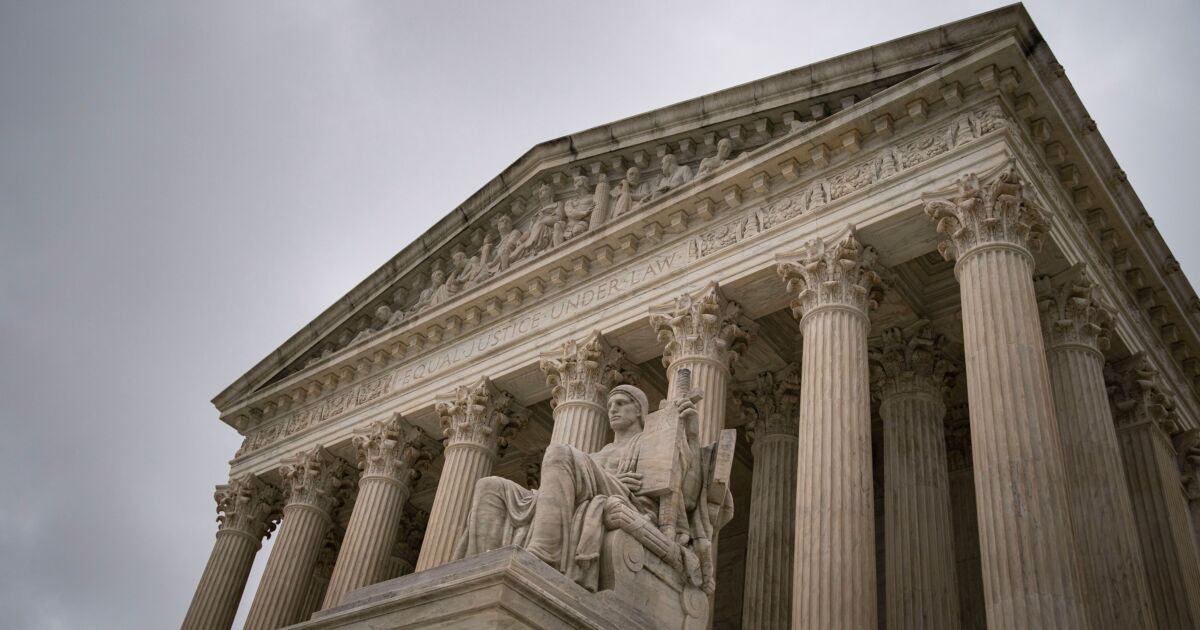
The Supreme Court is expected to rule by the end of June on whether
But many legal experts think the high court is more likely to rule in favor of the CFPB based on
Because the justices failed to devote much time to a remedy — and instead were highly skeptical that Congress improperly funded the bureau — many financial services industry lawyers are now gaming out what will happen to several rules and lawsuits that have been on hold pending the outcome of the case, Consumer Financial Protection Bureau v. Community Financial Services Association of America.
"I expect the CFPB to win," said Alan Kaplinsky, senior counsel at Ballard Spahr, who expects the ruling has taken so long to decide due to split decisions by the justices. "There will be multiple opinions and dissenting opinions and probably concurring opinions, and it takes time to get all that done."
Several lawyers who filed amicus briefs on behalf of CFSA, the lead trade group for
"They didn't ask the bureau or either party, how do we solve this? What's the solution?" said AJ Dhaliwal, a partner at the law firm Sheppard Mullin. "Because they didn't get into that, they can't blow [the CFPB] up."
Michael Benoit, chairman of the law firm Hudson Cook LLP, said that if the Supreme Court sided with payday lenders, the impact on federal financial regulators would be enormous.
"I've never felt the funding argument was very strong," Benoit said, adding that while the Supreme Court is not supposed to be political, "a decision that invalidates decades-long funding mechanisms would be a political earthquake in an election year — especially this election year."
Many legal experts initially thought
But since the oral arguments were held in October, there has been a reversal. Legal experts think a flood of litigation will be unleashed after the Supreme Court rules in the CFPB's favor.
"It will be a flurry of activity," Kaplinsky said.
Last year
Three major rules currently on hold will move forward, including the
"There's a lull right now before the decision," Dhaliwal said. "The fall was extremely busy and since the New Year, it's gotten real quiet in part because of the Supreme Court decision that's going to come out."
Meanwhile, nine enforcement actions and five petitions to enforce civil investigative demands have been stayed pending the outcome of the CFSA case, according to the CFPB.
"The CFPB is looking forward to the Court's decision, and in the meantime, we have continued to carry out the vital consumer protection work that Congress has charged us to perform," a CFPB spokesperson said.
Among the rules that are on hold, the payday rule is the best example of how an agency rule can be locked in litigation for years.
First developed and finalized in 2017 by former CFPB Director Richard Cordray, the payday rule was stripped of a provision requiring that lenders determine a borrowers' ability to repay a loan, and its original 2018 compliance date was postponed by a Texas judge after trade groups sued the bureau. What remains, if the rule gets enacted after the Supreme Court case, is a restriction that bars payday lenders from making more than two unsuccessful attempts to debit payment for a payday loan from a consumer's checking account. The restrictions were designed to protect borrowers from having their funds garnished by lenders and from incurring repeat overdraft charges.
Meanwhile, the small-business data collection rule — known as 1071 for its section in the Dodd-Frank Act — would require that banks, credit unions and small-business lenders collect and report data on applications for credit, primarily to determine whether small-business loans are being made to women-owned and minority-owned small businesses.
Last year, the U.S. District Court for the Southern District of Texas ruled that the CFPB had exceeded its statutory authority by expanding the data collected from lenders to
Another legal challenge involves a sweeping anti-discrimination policy that CFPB Director Rohit Chopra adopted in 2022 by making a change to the bureau's exam manual. The updated manual on the federal prohibition against "unfair, deceptive or abusive acts or practices," known as UDAAP, claimed discrimination in any financial product is an "unfair" practice that can trigger liability.
"The case is significant because the court issued the injunction based not only on the constitutional issue, but also on the CFPB exceeding its statutory authority," said Kaplinsky, adding that "there was no inkling at all that [UDAAP] intended to cover discrimination."
Last year, a federal judge in Texas
"Once the Supreme Court decision comes out, the CFPB will issue enforcement actions or proceed with litigation after-the-fact," Dhaliwal said. "They will be ready to pull the switch."



